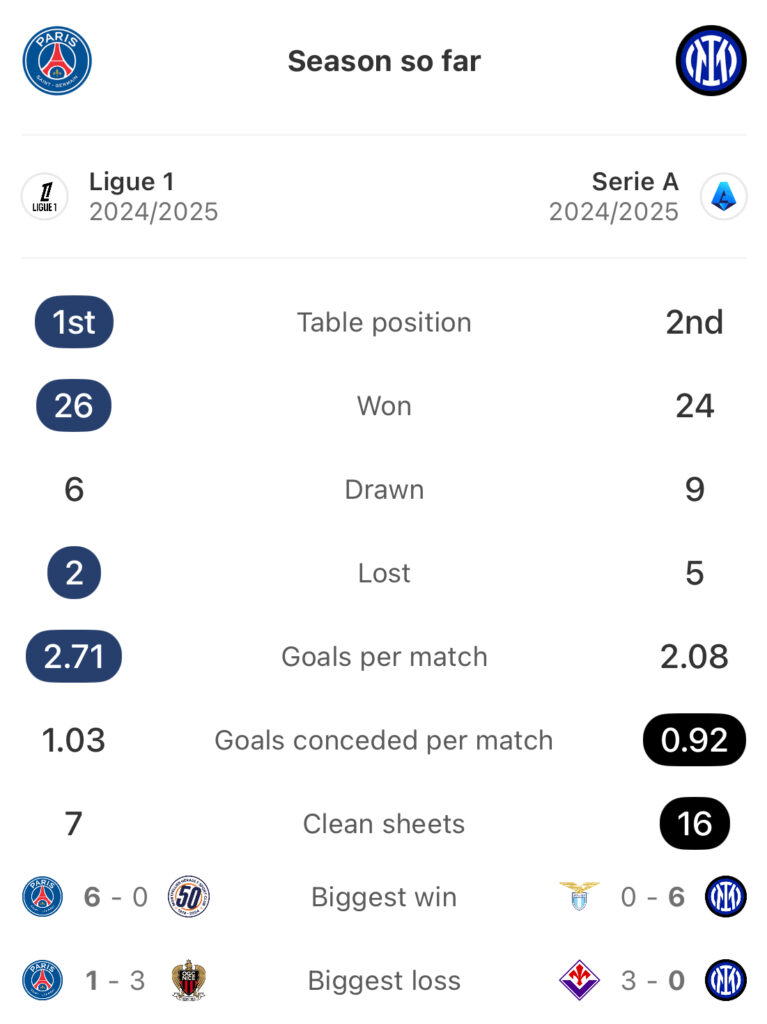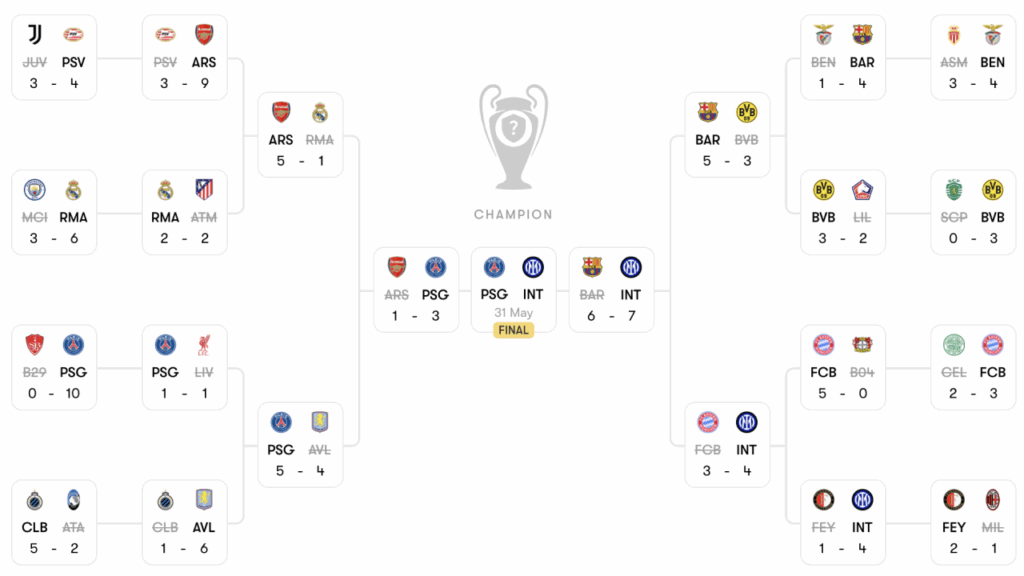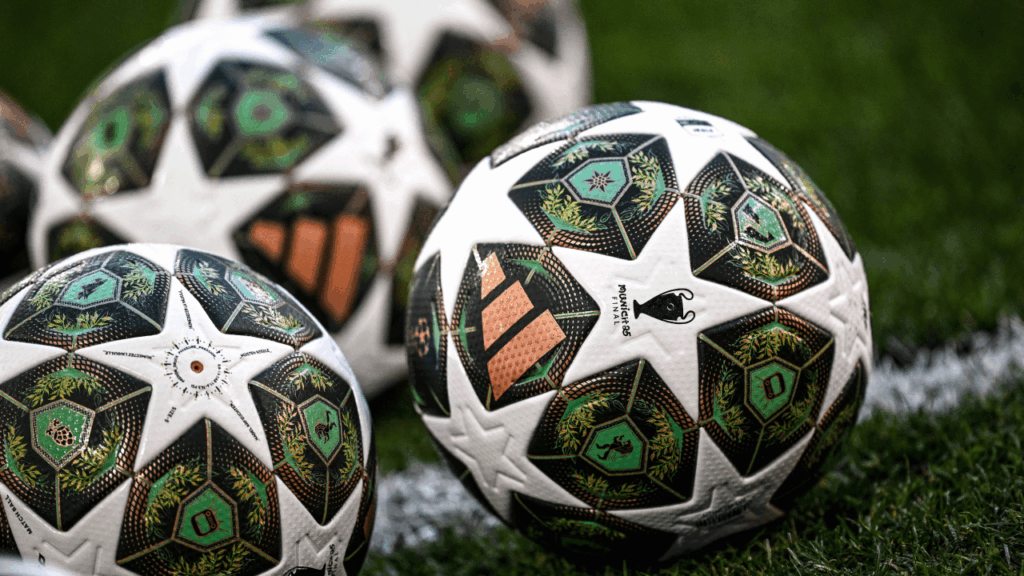On Saturday night in Munich, the Champions League Final won’t just decide Europe’s best club side of 2024/25. It’ll say something bigger. About what matters now in football. About who gets to define legacy. About the stories cities choose to tell through their teams.
Paris Saint-Germain. Inter Milan. One chasing validation, the other defending memory. Both carrying the weight of cities that see themselves as more than football towns, they’re cultural powerhouses, creative capitals, and engines of global identity.
So when the whistle blows in the Allianz Arena, don’t just think about tactics or titles. Think about what’s really at stake.
Two Cities, Two Visions
Milan is built on tradition. Not just footballing tradition, though they have that in spades, but institutional, generational, made-in-Italy tradition. Inter’s legacy is rooted in eras. Helenio Herrera. Javier Zanetti. Mourinho’s treble. Their identity is passed down like an inheritance. It’s not just who they are, it’s how they win.
Paris, by contrast, has always been about identity. Fashion, art, cinema, architecture, the world’s taste flows through its veins. And yet, in football, they’ve often been on the outside looking in. Only one French club has ever lifted the European Cup. It wasn’t PSG. Not yet.
This final isn’t just about who wins. It’s about which city gets to make the next cultural statement on football’s biggest stage.

What It Means for Paris
For PSG, this isn’t about justifying spending. That story’s been told. This is about belonging.
Paris is a global city with a local football complex. For all the lifestyle collaborations and sold-out tours, the club still walks into European competition without a seat at the grown-up table.
That changes if they win. A first Champions League trophy would mean more than prestige, it would cement Paris as a true football capital. Not just of aesthetics, but of achievement. Not just of hype, but of history.
It would also mean something for French football as a whole. Ligue 1 has long been viewed as Europe’s fifth wheel, this win would shift that conversation. It would be the biggest club triumph in French football in over 30 years.
And let’s not forget the symbolism of this squad. No Mbappé. No Messi. No Neymar. This is the most low-key version of PSG we’ve seen in years, and they’re the ones that could get it done.
There’s a rawness to this group. A sense of collective purpose replacing individual shine. And if they do lift the trophy, it will be the first time PSG feel less like a project, and more like a club that has found its own voice.
What It Means for Milan
Inter are no strangers to this stage, but it’s been a while. Their last Champions League win came 15 years ago. The core of that team is now in the boardroom or the media. That’s the thing about legacy, it fades if you don’t top it up.
Beating PSG wouldn’t just be a football win, it’d be a cultural message. That older establishment still matters. That tactics, cohesion, and continuity can still beat ambition, branding, and capital.
Milan, the city, understands this better than most. It’s seen fashion empires rise and fall. It knows timelessness beats trend. And Inter, for all their challenges this season, still represent that older code.
A win wouldn’t just be about football, it would echo across the city. Through the cafes, bars, and every household where Inter is part of the family fabric. In a city that lives and breathes both sport and style, Inter’s resurgence means something culturally powerful.
It would also remind Europe that the Italian game is still capable of leading from the front. Serie A clubs may not dominate the financial tables, but they still know how to navigate the chaos of a Champions League run.

What It Means for the Game
This final doesn’t exist in a vacuum. It matters to every club watching from the outside.
In boardrooms across Europe, decision-makers are taking notes. Is this the year legacy beats leverage? Does the win come from calculated cohesion or financial strength? What model, old or new, is really built to last?
The winner in Munich sets the tone not just for next season, but for the next era. The result won’t just influence fans. It will ripple into scouting policies, commercial positioning, and even ownership strategies.
Football always moves fast. But nights like this act as anchors, moments everyone keeps referring back to when trying to figure out what really works.
By the time kick-off arrives on Saturday night, everything else in football will have stopped.

It’s the last match that matters before the summer begins. No domestic drama left. No other finals to compete with. The spotlight is firmly on these two teams.
This is what makes the Champions League final different: it’s not just a match, it’s a global cultural event. Viewed by hundreds of millions around the world.
For the players, it’s a one-game referendum on legacy. Win it, and you become part of football’s permanent story. Fall short, and the moment fades fast, no matter how well you played.
For the clubs, it’s a reputation-defining night. Not just for fans, but for sponsors, for recruits, for narrative. Paris wants to stop being seen as football’s nearly men. Inter want to remind the world they’ve never really left.
This final doesn’t just crown a champion. It freezes a moment in football history, watched, remembered, and replayed for generations.
(Images from IMAGO)
You can follow the Champions League Final on FotMob – with in-depth stat coverage including xG, shot maps, and player ratings. Download the free app here.
